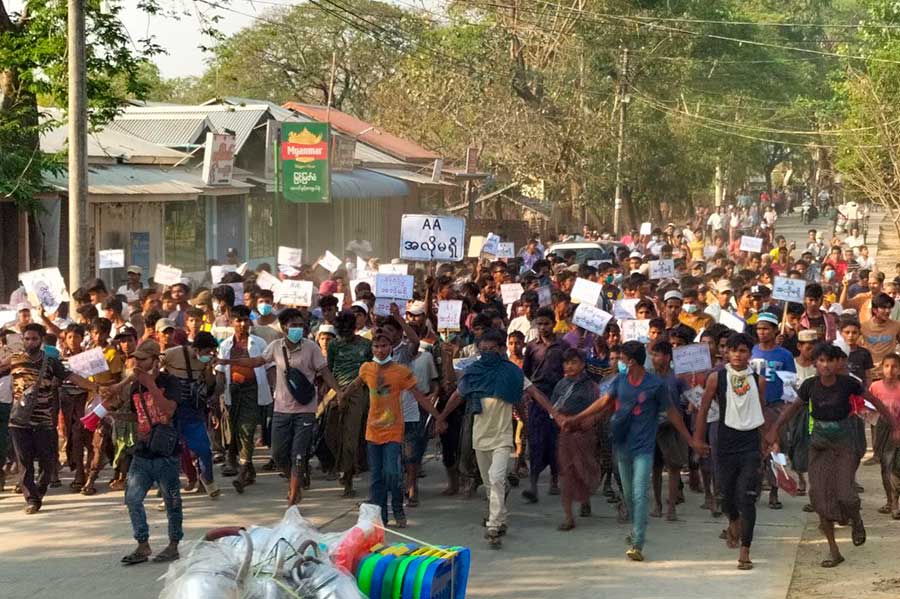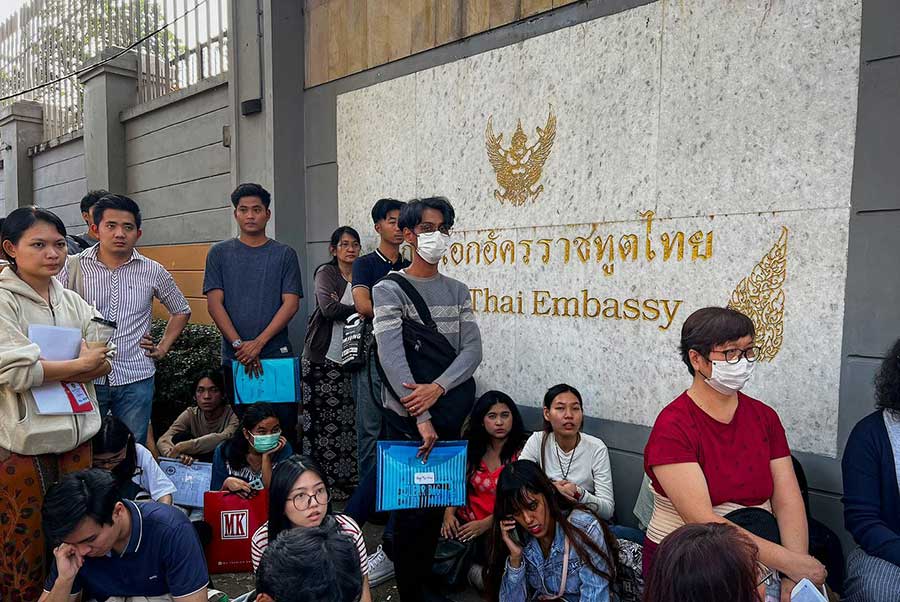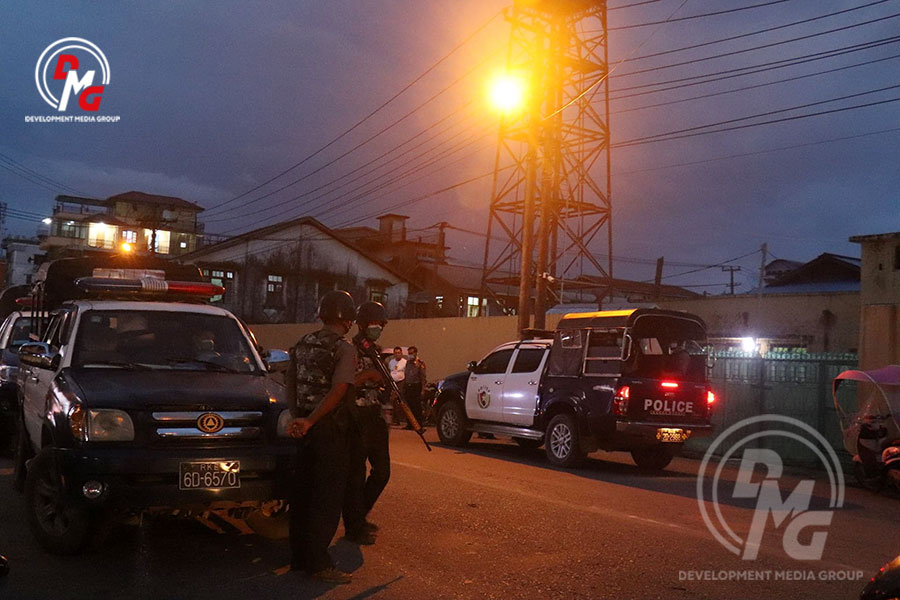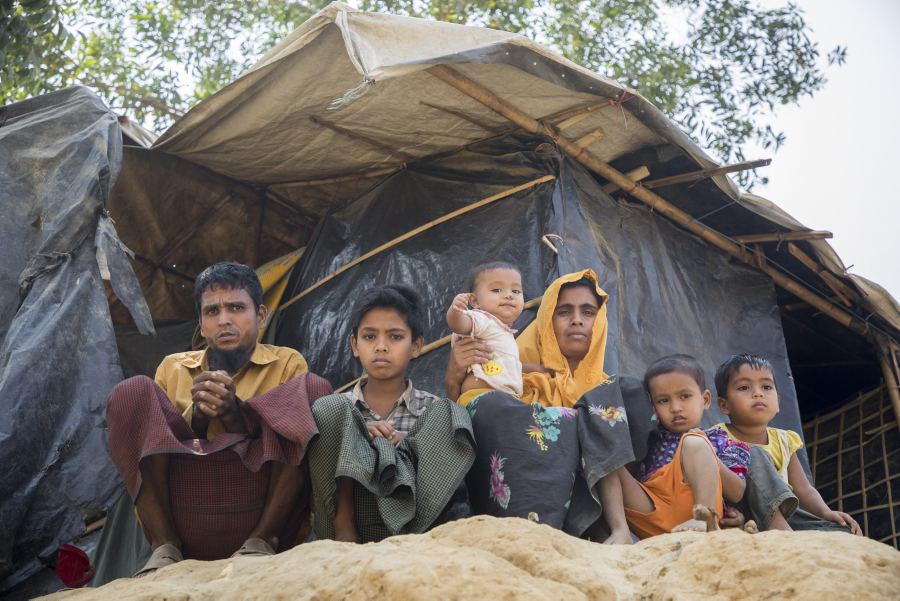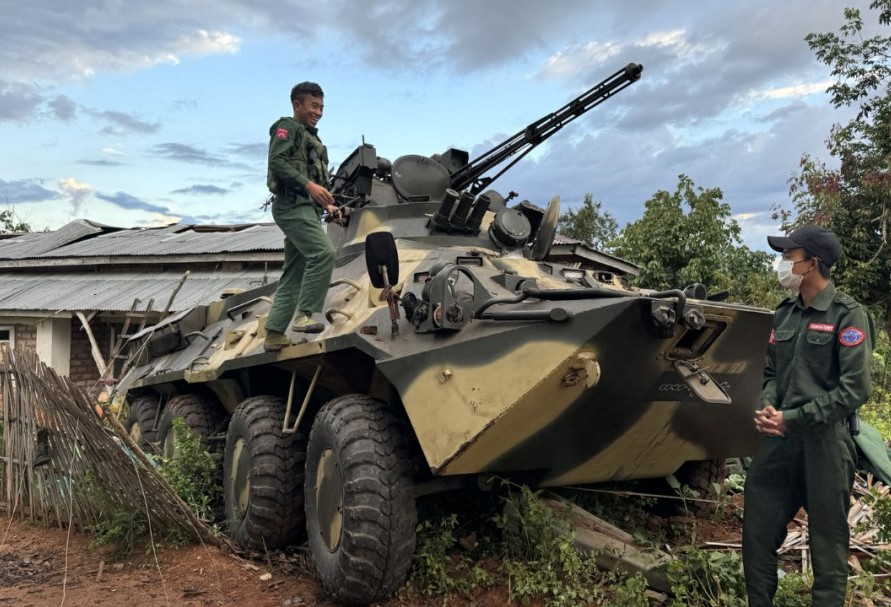30% of IDP children in Arakan State unable to attend school: REC
With basic education schools open nationwide since June 1 following months shuttered due to the COVID-19 pandemic, 97% of students in Arakan State are attending classes, according to the Arakan State education office.
16 Jun 2021
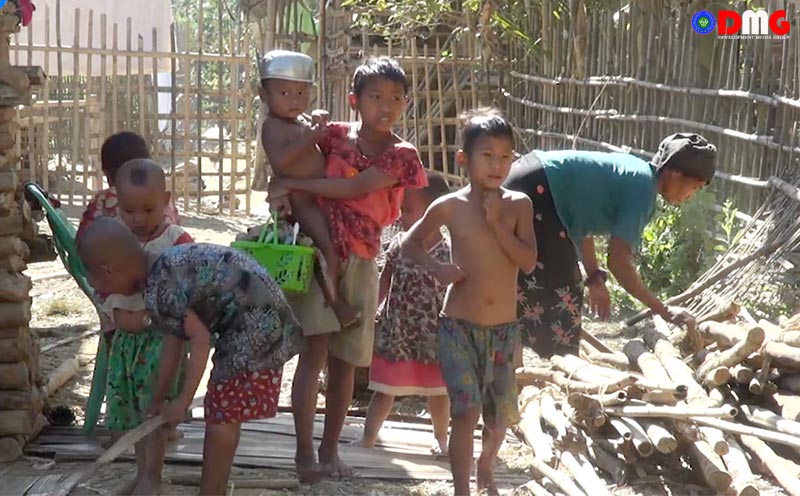
DMG Newsroom
16 June 2021, Sittwe
With basic education schools open nationwide since June 1 following months shuttered due to the COVID-19 pandemic, 97% of students in Arakan State are attending classes, according to the Arakan State education office.
But a survey conducted by the Rakhine Ethnics Congress (REC) found that 30% of school-age children in camps for internally displaced people (IDPs) in Arakan State remain unable to attend school.
There are more than 100,000 IDPs in Arakan State, 30% of whom are school-age children, according to REC officials.
Many parents in IDP camps cannot afford to send their children to school due to financial difficulties, and school-age children also need school supplies and monsoon season accessories like raincoats, said U Than Lone Aung, an IDP from Oo Thin Monastery IDP camp in the Arakan State capital Sittwe.
“My children do not have umbrellas or shoes and go to school only three days a week. A middle school student has to pay K20,000 ($12.15) a month for tuition” he said.
U Than Lone Aung has four children and is unable to fully support his children’s education due to irregular employment and consequently low income.
Daw Than Yee, an IDP from Thayetouk Monastery in Sittwe, said the education of her three children had been neglected due to the death of her husband.
“We are struggling to make ends meet. I also have a mother who is in poor health and needs to go to the clinic,” she said.
Due to financial difficulties, her daughter works at a local shop and as a restaurant waitress, Daw Than Yee said.
The Arakan State education officer has said that under the auspices of the Ministry of Education, Myanmar’s basic education system provides for free schooling.
But IDP camp managers say displaced school-age children often live far from the nearest school, presenting another formidable hurdle to attendance.

